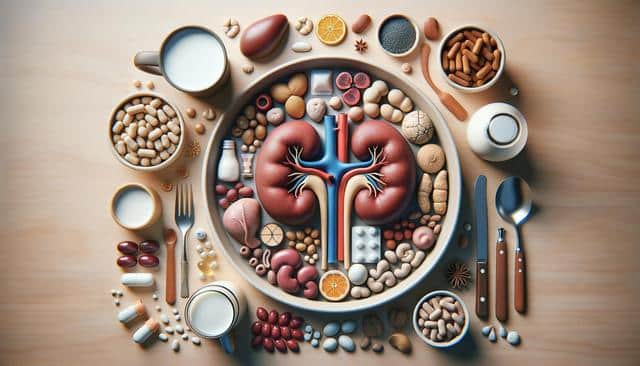Understanding Kidney Disease
Kidney disease, a condition where the kidneys are no longer able to function effectively, affects millions worldwide. The kidneys play a crucial role in filtering waste and excess fluids from the blood, which means that any impairment can lead to significant health challenges. For those living with kidney disease, diet becomes an essential part of managing the condition. Dietary adjustments can help control symptoms and prevent further damage to the kidneys. Understanding what kidney disease entails is the first step towards managing it effectively. The progression of kidney disease can vary, with some individuals experiencing rapid progression while others may maintain stable kidney function for years. It is crucial to work closely with healthcare providers to monitor kidney function and adapt dietary needs accordingly.
Foods to Avoid
Managing kidney disease involves avoiding certain foods that can exacerbate the condition. High sodium foods are particularly harmful as they can lead to increased blood pressure, further stressing the kidneys. Patients should limit intake of processed foods, fast foods, and salty snacks. Additionally, foods high in phosphorus and potassium should be consumed in moderation. Examples include:
- Processed meats like sausages and hot dogs
- Dairy products such as cheese and milk
- Certain fruits and vegetables like bananas and potatoes
These foods, while nutritious, can cause an electrolyte imbalance in those with compromised kidney function, leading to complications.
Beneficial Dietary Choices
In contrast, there are a variety of foods that can be beneficial for individuals with kidney disease. These foods help maintain kidney health by reducing the burden on the kidneys and providing essential nutrients. Some excellent choices are:
- Low-sodium foods
- Fruits and vegetables with low potassium content, such as apples and berries
- Lean proteins like chicken and fish
- Whole grains, which are lower in phosphorus compared to processed grains
These foods support overall health and help manage the symptoms of kidney disease effectively. Incorporating these into daily meals can improve quality of life for those affected.
Importance of Hydration
Staying hydrated is crucial for everyone, but it is particularly important for those with kidney disease. Proper hydration helps the kidneys filter waste more effectively and keeps the urinary tract functioning well. However, people with kidney disease need to be mindful of their fluid intake to prevent overloading the kidneys. Physicians often provide specific guidelines on fluid consumption based on individual needs. Drinking water, rather than sugary or caffeinated beverages, is generally recommended. Patients should also pay attention to signs of dehydration or fluid overload, adjusting their intake as necessary under medical guidance.
Consulting with Healthcare Professionals
Given the complexities of kidney disease, it is essential to work closely with healthcare professionals to tailor dietary plans to individual needs. Registered dietitians specializing in kidney health can offer invaluable guidance. They help patients understand food labels, plan meals, and develop a sustainable eating plan that aligns with their health needs. Regular consultations ensure that dietary adjustments are made in response to changes in kidney function, helping to prevent complications and improve outcomes. Collaboration with healthcare providers ensures a comprehensive approach to managing kidney disease through diet.
Conclusion
In conclusion, managing kidney disease through diet requires careful consideration and ongoing collaboration with healthcare professionals. By avoiding harmful foods and embracing beneficial dietary choices, individuals with kidney disease can maintain better health and quality of life. Staying informed about dietary needs and regularly consulting with healthcare providers are crucial steps in effectively managing kidney disease.
